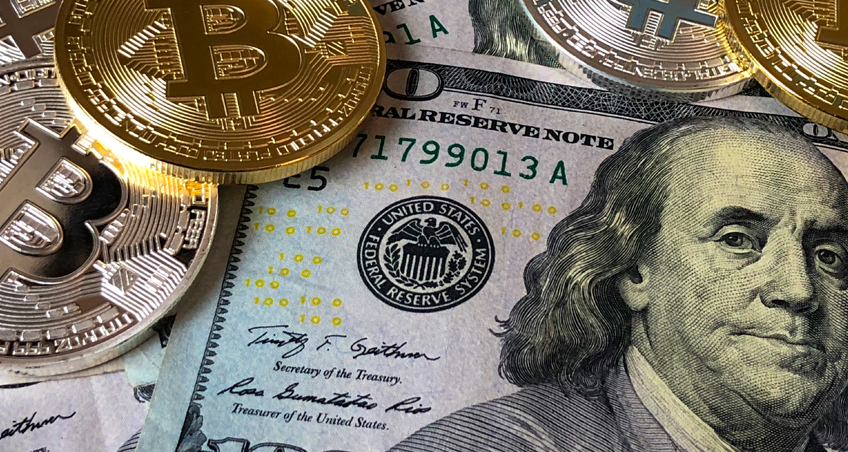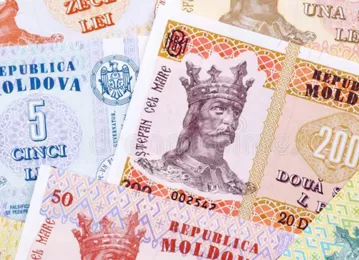
The National Bank of Moldova has banned all payment systems in the country to work with cryptocurrency
The document was published by the payment service Bpay. As noted, having described the existing numerous risks, the National Bank, as a supervisory authority, demanded the termination of facilitation/intermediation of payments from/in payment accounts and electronic currency accounts to platforms for the purchase/sale of virtual currencies and the termination of cooperation/servicing of companies whose field of activity is the exchange of virtual currencies to fiat currency and inform the NBM of the measures taken within 30 days from the date of receipt of the letter.
The NBM noted that trading and speculative activities with virtual currencies, which have destroyed the global economy and the financial market, pose potential risks, including for individuals, related to price volatility and lack of adequate security, lack of regulation and supervision of transactions, as well as high risk of involvement in money laundering and terrorist financing operations. Therefore, virtual currencies are not suitable for use as a means of payment and represent a highly speculative investment level. Investors in these assets are at high risk of losing their invested funds, without a guarantee or protection of them, but also at the risk of being involved in illegal activities such as illegal fundraising, fraud, pyramid schemes, illegal gambling, terrorist financing, money laundering and other types of criminal activity.
The National Bank also reminded that at present the use of virtual money is not regulated in Moldova. They are not a form of electronic money, and their issuance and trade activities are not subject to supervision by the authorized body.
For these reasons, users of virtual currencies are also exposed to risks related to the interests of users: fraud during the conversion operation, commissions or an unfavorable exchange rate during the conversion, hacking of wallets, loss of personal data, freezing of the amount by the exchange platform when converting virtual currency into regular currency, loss amounts in case of bankruptcy of the exchange platform, high volatility of the exchange rate at which it was possible to exchange virtual currencies.
In addition, there are no guarantees that the virtual currency will be accepted by the merchants, the amount may be incorrectly debited, in some cases the user cannot convert the virtual currency or cannot access the wallet after losing the private key, etc. Meanwhile, considering the absence of a reliable regulatory framework for the regulation and supervision of the virtual assets market, along with the obvious interest of criminals in the activities of virtual currencies, the NBM also emphasized the persistence of the following risks for authorized market participants: the financial system and, therefore, for the integrity of the financial system itself: money laundering risks and financing of terrorism; risks associated with financial crimes, such as the use of virtual currencies for the sale of prohibited goods, etc.
The National Bank indicates that participation in transactions with virtual assets, in conditions where Moldova has not adopted a regulatory framework governing the prevention and control with money laundering and terrorist financing in the field of virtual assets and the requirements of relevant international standards are not met, exposes payment service providers to serious risks of participation in money laundering and terrorist financing activities.
These risks increase exponentially, given the identified vulnerabilities in the activities of payment service providers, according to the National Risk Assessment Report in the field of SB / FT4, there are gaps related to the level of implementation of measures to prevent and combat money laundering, namely: low efficiency of application of requirements for identifying and reporting suspicious transactions; lack of resources allocated to the needs of this area; low efficiency associated with the application of customer identification requirements; lack of an adequate payment monitoring system; failure to identify politically exposed persons and other persons at increased risk, as well as persons subject to sanctions and other restrictions; lack of specialized training for employees of these institutions, etc.
The NBM recalled that, in accordance with the current legal framework in the field of preventing and combating money laundering, in particular, it is established, among other things, that accountable persons are obliged to apply certain precautionary measures and increased caution in relations with their clients, establishing their degree of depending on the client, the identified risk of money laundering and terrorist financing, country (jurisdiction), business relationship, product, service or transaction. If it is impossible to comply with the requirements of the Law, the accountable persons are obliged not to carry out any activity or operation, not to establish any business relationship or terminate the business relationship.
The National Bank noted that by publishing press releases on the official website, the NBM discourages individuals and payment service providers from participating in virtual currency trading in order to avoid risks, including the risk of money laundering and terrorist financing, as well as reputational risk. It was noted that while there is currently no framework for regulation and supervision of the virtual asset/currency market in Moldova, the obligations of payment service providers as accountable entities under Law no. 308/2017 are clearly defined and should be applied unconditionally.
In the light of the foregoing and based on the fact that virtual currencies do not constitute a form of money (for example, electronic currency) or a payment instrument, and transactions with them do not constitute payment services within the meaning of Law No. 114/2012, and taking into account the level of the risks of money laundering and terrorist financing associated with activities with virtual currencies, the NBM demanded that the country's payment systems stop working with cryptocurrencies.
It should be noted that according to the NBM, if in 2010 the volume of the virtual assets market was about $1 billion, then in 2021 it increased to about $3 billion, and in the first half of 2022 it was $1 billion. //04.11.2022 – InfoMarket.






